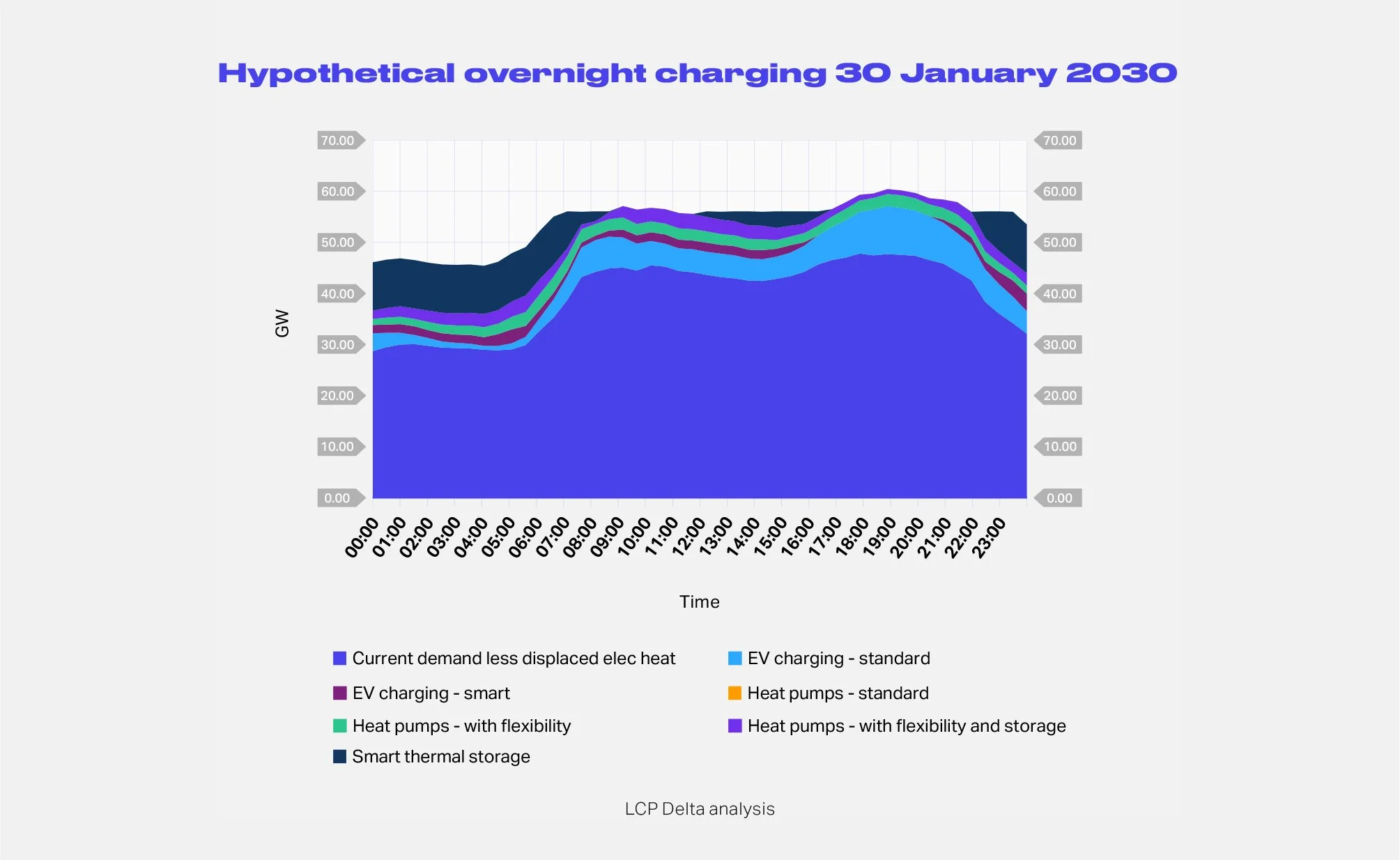Heat flexibility - new report
I’m excited to share that Thermal Storage UK has published a new report on the potential for heat flexibility by 2030. This is our first report as a trade association and is designed to help policymakers think about heat flexibility.
The headlines
The report was based on research from the consultants LCP Delta. LCP Delta estimates that the UK could use smart thermal storage in 2.4 million homes to reduce peak electricity demand on the coldest day of the year by 1.6GW by 2030. This peak demand reduction from smart thermal storage could increase to 4.1GW if the benefits of flexibility to electricity networks were reflected in pricing. Indeed, smart thermal storage can shift 17.64 GWh of electricity across the coldest day.
The report particularly highlights the role of smart thermal storage, working with or instead of heat pumps, to shift heating demand. Smart thermal stores can consume electricity at times of lower wholesale prices, which are increasingly at times of higher renewable generation. The customer benefits from the warmth of a low carbon heating system.
As well as peak demand reduction, smart thermal stores can provide flexibility across the winter. On an average winter day where the average temperature is at or below 6C, the LCP Delta analysis suggests that smart thermal stores can shift 5.87 GWh of electricity flexibility. Across the 79 days which resemble this average winter day, the smart thermal stores provide 463.79 GWh of flexibility.
The analysis
The LCP Delta analysis shows that, in a world of heat pumps without price signals, there is a peak in electricity demand in the early evening.
In an alternative scenario, smart thermal storage responds to the price signal from the wholesale market and shifts when people consume electricity for heat, reducing peak demand.
To handle the additional renewables and the increased demand for electricity in 2030, the energy sector can build out the network infrastructure or flexibly use smart demand products. The more that flexibility is utilised on the demand side, the less the UK needs to spend on network infrastructure, curtailing renewables and using the capacity market for fossil gas power plants. The electricity system benefits overall by reducing peak demand in winter.
With the right reforms to the power market to recognise the value of this flexibility to the electricity networks, we expect smart thermal storage to further flatten demand. We offer 16 recommendations in the report.
The future of heat requires designing low carbon electric heating to provide heat to homes and flexibility to the power system. Heat flexibility is an important consideration when installing heat pumps or smart thermal storage.
Heat flexibility is an underdeveloped area of thinking in the energy sector. Further work is required to refine the analysis and to consider the interaction with potential power market reform options. We welcome feedback on any or all of the assumptions we have made.
You can find the report and the technical analysis from LCP Delta on the Publications section of our website.
Tom Lowe
The views expressed here belong to Thermal Storage UK, rather than members of the trade association




